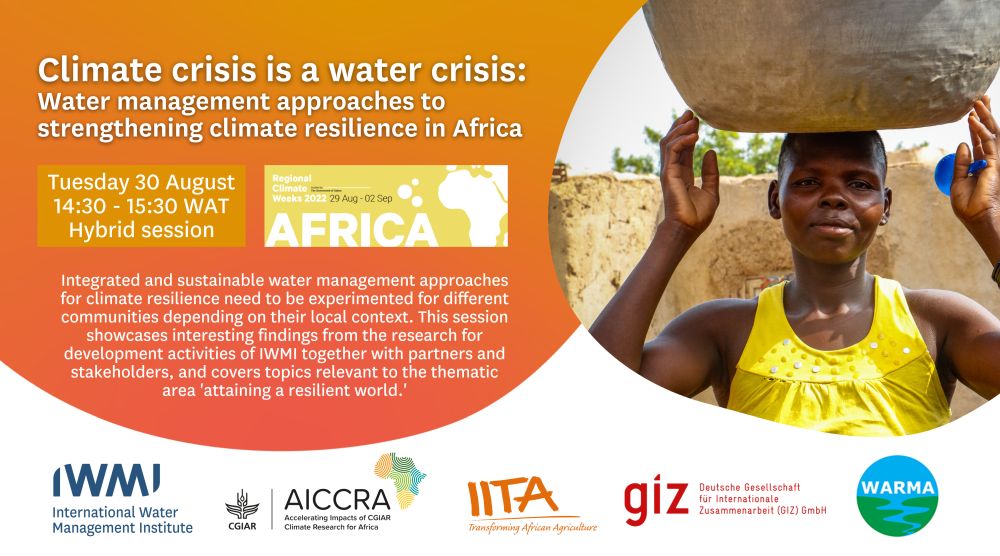
Africa Climate Week 2022 is a crucial step on the road to COP27 in Egypt. Africa Climate Week will be held from 29 August to 2 September in Libreville, Gabon, and will engage and empower stakeholders to drive climate action across countries, communities and economies.
IWMI together with its partners, will host a 1-hour side event titled ‘Climate crisis is a water crisis: Water management approaches to strengthening climate resilience in Africa.’
Description
The adverse impacts of climate change in Africa are already visible from the recurrent droughts and floods in the region. The impact of such changes is causing devastating consequences for different vulnerable communities such as small-scale farmers, pastoralists, and poor (semi-) urban dwellers. Adaptation to climate change is mainly through the medium of water and its management. Integrated and sustainable water management approaches need to be experimented for different communities depending on their local context. This one-hour session showcases the interesting findings of research for development activities by IWMI in collaboration with partners and stakeholders. The session will cover the following topics relevant to the thematic area ‘attaining a resilient world’.
Event format
- Introduction on the objective of the session
- 8 short scene setter presentations (5 minutes each)
Agenda
- Climate extremes and water related risks with potential adaptation options, case studies from the Lake Tana Sub-basin, Ethiopia, by Meron Taye (IWMI)
- Opportunities for strengthening solar power irrigation in Sahelian West Africa, by Sander Zwart (IWMI)
- Climate smart agriculture and its effect on food security and multidimensional poverty of rural farm households, by Fitsum Hagos (IWMI)
- Flood and drought indicators: case study from Zambia, by Eng Chewe Chishala, Director: Water Resource Management, Water Resource Management Authority, Zambia
- Building resilience against climate change: understanding social transformation process, by Charity Osei-Amponsah (IWMI)
- Scaling climate smart agriculture through innovation and partner bundling in Southern Africa, by Hauke Dahl (IWMI/GIZ/AICCRA Zambia)
- Evidence-based partnership strategies to accelerate innovation scaling in irrigated agricultural value chains, by Minh Thai (IWMI)
- Innovative partnerships for delivering climate smart agriculture and enhancing the delivery of climate information services in Zambia, by Mirriam Makungwe, (IWMI/IITA/AICCRA Zambia)
Interactive Q&A session
Wrap up

